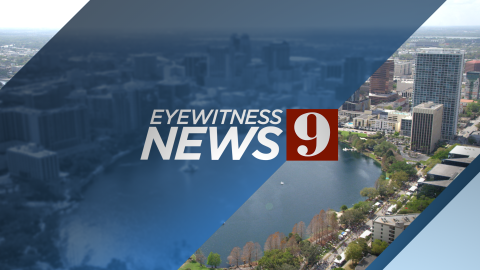ORANGE COUNTY, Fla.,None — An Islamic Imam from a Central Florida mosque was arrested by a counter-terrorism agent, WFTV reporter Kathi Belich discovered.
Marcus Robertson is being held on a federal weapons charge, but WFTV also found out the 43-year-old religious leader is a convicted felon.
According to court records, investigators relied on a federal act involving national security to obtain information on Robertson. WFTV learned that Robertson calls himself Imam Abu Taubah, a prayer leader of the Masjid Al-ihsaan mosque in East Orange County.
But an FBI counter-terrorism agent arrested Robertson on August 23 for having a Springfield .45-caliber handgun and two loaded magazines, because it is against the law for a convicted felon to have a gun.
The counter-terrorism agent wrote in his affidavit that the agent has "conducted investigations in counter-terrorism matters in the United States."
The counter-terrorism agent wrote that he found the gun and loaded magazines in a dresser drawer in Robertson's former East Orange County residence.
Court records also show federal prosecutors plan to use intelligence information gathered through the Foreign Intelligence Surveillance act of 1978, which our legal analyst Bill Sheaffer said is used only to investigate suspicions involving matters of national security.
"The government had to believe that there was possible criminal activity that affected national security; otherwise they could not have used the act," Sheaffer said.
WFTV contacted the FBI, but a spokesman wouldn't give any specifics about the case or exactly why that particular act was used. Robertson's federal public defender said he had no comment at this time.
Robertson is not charged with being involved in terrorism. He is being detained at the Seminole County jail, only charged with the federal gun violation, and he is scheduled for trial in January.
The federal Foreign Intelligence Surveillance Act has been amended several times over the years.
One of its main powers allows investigators to use surveillance without permission from the courts.
WFTV
:quality(70)/cloudfront-us-east-1.images.arcpublishing.com/cmg/B2P7OS33RZCSBKPPXZWRGXXDFU.jpeg)
:quality(70)/cloudfront-us-east-1.images.arcpublishing.com/cmg/QRQ3GHUXNVGUBIQXDGZ7CNBFSY.jpeg)
:quality(70)/cloudfront-us-east-1.images.arcpublishing.com/cmg/43ZYOPEFMJHLFI3OQ3B5OXWDZM.jpg)
:quality(70)/cloudfront-us-east-1.images.arcpublishing.com/cmg/YXO3ZWDYABARRB5MJETLITWAGM.jpeg)
